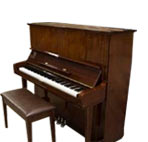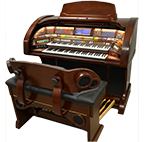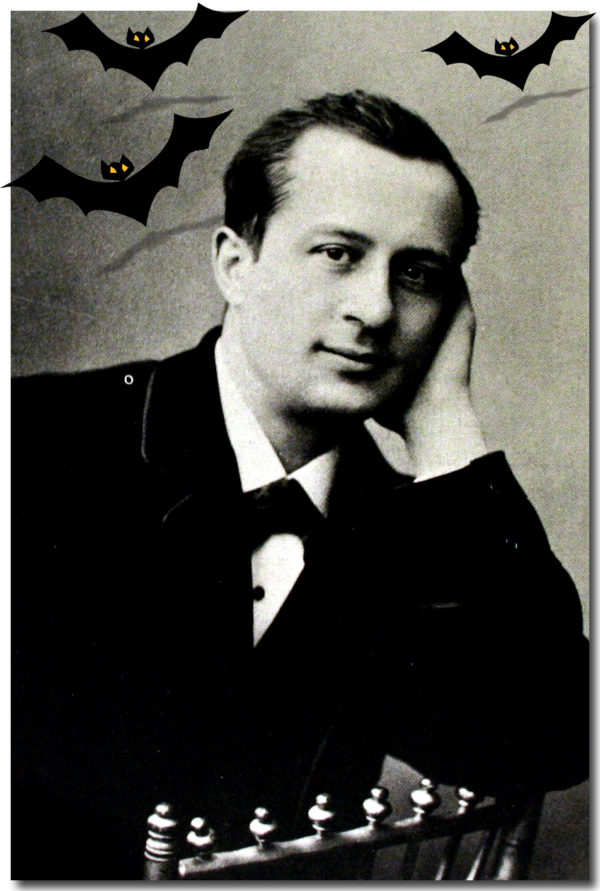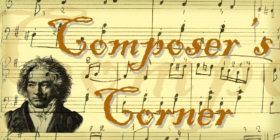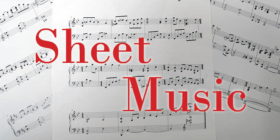Alexander Ilyich Siloti (Ziloti) (October 9, 1863 – December 8 1945) was a Russian pianist, conductor and composer.
Biography: Siloti was born on his father’s estate near Kharkiv, Ukraine (then part of Imperial Russia). He studied piano at the Moscow Conservatory with Nikolai Zverev from 1871, then from 1875 under Nikolai Rubinstein; from that year he also studied counterpoint under Sergei Taneyev,[1] harmony under Pyotr Ilyich Tchaikovsky, and theory under Nikolai Hubert.[2] He graduated with the Gold Medal in Piano in 1881. He worked with Franz Liszt in Weimar (1883-1886), co-founded the Liszt-Verein in Leipzig, and there made his professional debut on 19 November 1883. Returning in 1887, Siloti taught at the Moscow Conservatory, where his students included Alexander Goldenweiser, Leonid Maximov, and his first cousin Sergei Rachmaninoff. In this period he began work as editor for Tchaikovsky, particularly on the First and Second piano concertos.
He quit the Conservatory in May 1891, and from 1892-1900 lived and toured in Europe. He also toured New York, Boston, Cincinnati and Chicago in 1898. It was on these tours that he first introduced Rachmaninoff’s famous C-sharp Minor Prelude to the West. He was the conductor for the world premiere of Rachmaninoff’s Piano Concerto No. 2 in 1901. From 1901-1903, Siloti led the Moscow Philharmonic; from 1903-1917, he organized, financed, and conducted the influential Siloti Concerts in St Petersburg, in which much of work had been done by famous critic and musicologist Alexander Ossovsky. He presented Leopold Auer, Pablo Casals, Feodor Chaliapin, George Enescu, Josef Hofmann, Wanda Landowska, Willem Mengelberg, Felix Mottl, Arthur Nikisch, Arnold Schoenberg and Felix Weingartner, and local and world premieres by Debussy, Elgar, Glazunov, Prokofiev, Rachmaninoff, Rimsky-Korsakov, Scriabin, Sibelius, Stravinsky and others. Sergei Diaghilev first heard Stravinsky at a Siloti Concert.
In the generation prior to 1917, Siloti was one of Russia’s most important artists, with music by Arensky, Liszt, Rachmaninoff, Stravinsky and Tchaikovsky dedicated to him. In 1918, Siloti was appointed Intendant of the Mariinsky Theatre, but late the following year fled Soviet Russia for England, finally settling in New York in December 1921. From 1925-1942 he taught at the Juilliard Graduate School, performing occasionally in recital, and in November 1930 gave a legendary all-Liszt concert with Arturo Toscanini. Siloti’s private students included Marc Blitzstein, Gladys Ewart, and Eugene Istomin.
He wrote over 200 piano arrangements and transcriptions, and orchestral editions of Bach, Beethoven, Liszt, Tchaikovsky and Vivaldi. Possibly his most famous transcription is his Prelude in B minor, based on a Prelude in E minor by J. S. Bach. Siloti also made 8 piano rolls and 26 minutes of home-cut discs. In the 21st century, the art of transcription has made a significant return. Such music from great artists of the past, including Bach, Mozart, Chopin, Tchaikovsky and Liszt, has now resumed its formidable importance. Alexander Siloti, one of the great exponents of that art, is also seeing his name rapidly restored to the pantheon. Carl Fischer has published a large anthology of Siloti piano transcriptions, and Rowman and Littlefield has published the first full-scale biography. The first run having sold out, it will shortly be reprinted in paperback, together with a list of nine errata from the first edition.



